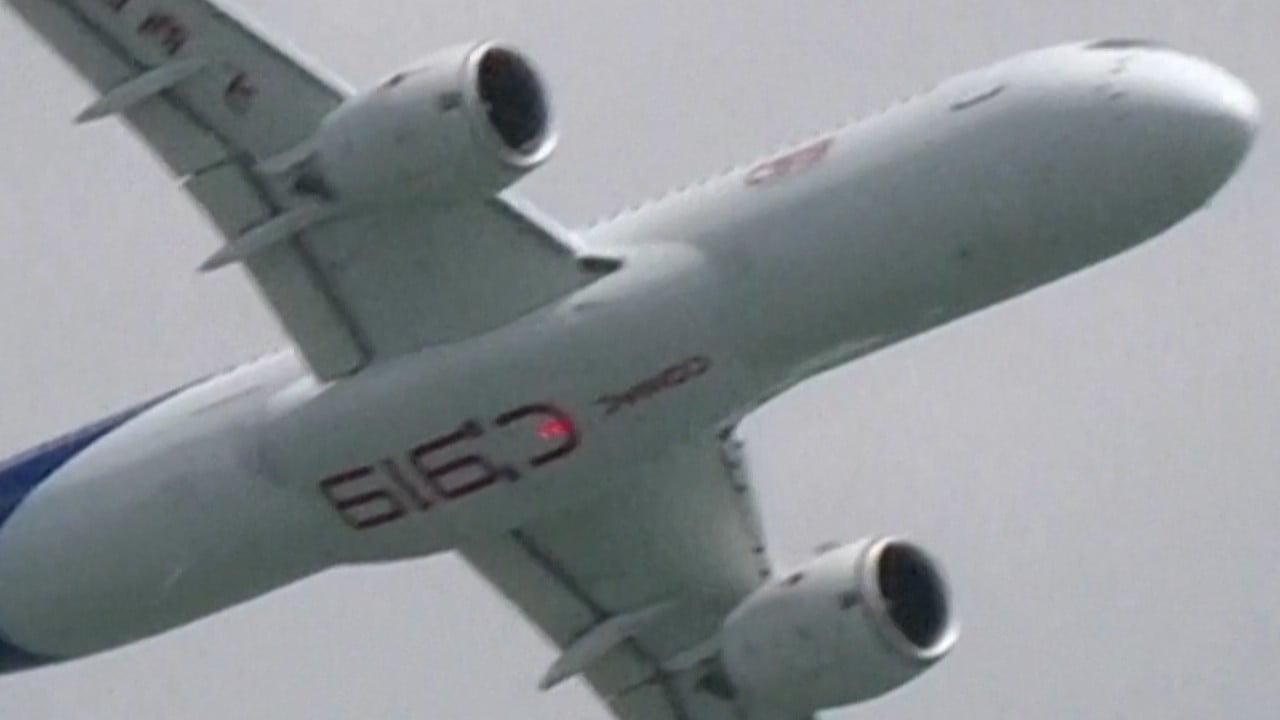
Singapore’s plan for flight levy linked to green fuel adoption unlikely to dent air travel demand
- The levy comes as Singapore mandates a proportionate increase of sustainable aviation fuel used by airlines over the next few years
- For a short-haul flight to a destination such as Bangkok, the levy is expected to cost US$2.23 for an economy-class fare, an analyst says
The levy will be set based on the volume of SAF needed to achieve the targets and projected prices of the fuel. Singapore plans to impose the levy from 2026, according to The Straits Times.
For economy class flights from Singapore, the levy is projected to cost around S$3 (US$2.23) for a short-haul destination such as Bangkok, S$6 for a medium-haul destination such as Tokyo and S$16 for a long-haul destination such as London, Patel said.
‘Taylormania’ in Singapore hits crescendo ahead of Eras shows: ‘she inspires me’
“These charges are for a sustainable future and [cost] less than a cup of coffee or meal at the airport,” he added.
SAF is made from various feedstocks such as recycled cooking oil and municipal wastes. The Civil Aviation Authority of Singapore (CAAS) says fuels such as SAF are critical towards achieving decarbonisation.
Air travel currently produces about 2 per cent of the world’s emissions but is considered one of the hardest sectors to decarbonise.
European regulators have to date been the most active in trying to boost the use of SAF, introducing rules that force airlines to meet minimum requirements for its use. France has mandated the level of SAF use at 2 per cent by 2025 and 5 per cent by 2030.
Under the European model, the carrier pays for the SAF and decides whether to pass the cost onto air ticket prices.
“It’s not only about the cost. Sooner or later, every airline in every country will have to start taking steps towards achieving net zero by 2050,” said Shantanu Gangakhedkar, senior consultant for aerospace and defence at Frost & Sullivan.
India’s EV makers cut prices, boost demand ahead of Tesla’s market entry
Most of Asia’s air travel demand has already recovered up to 90 per cent since the pandemic, Shantanu said. “If there is to be a slight increase in ticket prices, I don’t see it having a major impact on travel demand given that the average load factor in Asia continues to be quite strong,” he added.
Other analysts said that the impact of the levy may vary from sector to sector.
“The question of the impact of a levy on that recovery will be very dependent on the price sensitivity of the consumers in the market,” said Chris Mehigan, transport and mobility partner at Penta Group.
Data from the industry association Airlines for America shows that net fares from Asia to the USA were 40 per cent higher in the third quarter of 2023 on average than in the third quarter of 2019, he said.
“Airlines are still seeking to recover [from] record losses from the impact of the global pandemic. Supply chain reductions are hampering their growth ambitions and causing them to revise their forecasts down,” said Mehigan.
Can Singapore’s first man-made oyster reef shore up marine biodiversity?
According to FCM Consulting’s report for the fourth quarter of 2023, popular routes in Asia have seen an increase in both economic class and business fares.
For instance, between Singapore and Shanghai, economy class fares rose by 9 per cent while business class fares to Shanghai Pudong International Airport and Shanghai Hongqiao Airport jumped by 21 per cent and 22 per cent, respectively, year-on-year in October 2023, FCM reported.
Price of green policies
The announcement of Singapore’s green fuel levy plan comes at a time when airlines are keeping their ticket prices high as they try to earn more from passengers in the post-Covid travel boom and mitigate higher operational costs.
Kenji Soh, a general manager of FCM Travel Southeast Asia, noted that fuel cost is a big chunk of airfares but said the launch of newer and more fuel-efficient aircraft should allow prices to “remain static” for a longer time.
Fuel typically accounts for up to a quarter of the operating costs of airlines. SAF is expected to cost much more than traditional fuels.
With the induction of new aircraft capacity, airline fares have started moderating in recent weeks.
‘We need Swiftonomics’: Indonesia eyes hosting mega stars to boost tourism
“Prices are likely to slide in the midterm as the global economy weakens and geopolitics heats up,” said Shukor Yusof, Singapore-based founder and analyst at Endau Analytics.
The adoption of SAF is expected to depend on its pricing and availability, which has reportedly been scarce, industry executives said.
Singapore’s levy could prompt airlines to challenge the price differential between regular and green fuels but it would be premature to assess the cost impact for now, Mehigan said.
The green fuels industry says it is well-positioned to help the aviation sector decarbonise.
More renewable raw materials are expected to be available from now until 2030, said Sami Jauhiainen, APAC vice-president of the renewable aviation business at Neste, a producer of sustainable fuels. The supply of the materials would be enough to help ramp up SAF production in the coming years, he added.
Meanwhile, Southeast Asian airlines are gearing up to speed up their decarbonisation efforts.
Among them, Vietnamese low-carrier VietJet Air recently signed a partnership with Dubai-based SAF One, an SAF production start-up, to develop the fuel in Vietnam.
Singapore’s announcement on the air travel levy is expected to spur wider adoption of greener fuels among airlines in the Asia-Pacific, Jauhiainen said.


